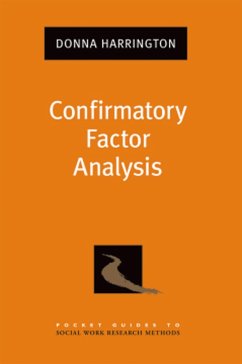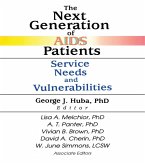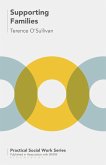Measures that are reliable, valid and can be used across diverse populations are vital to social work research, but the development of new measures is an expensive and time-consuming process. An array of existing measures can provide a cost-effective alternative, but in order to take this expedient step with confidence, researchers must ensure that the existing measure is appropriate for the new study. Confirmatory factory analysis (CFA) is one way to do so, and in this clearly written pocket guide Donna Harrington provides social work researchers with an essential roadmap to the highlights of CFA's powers and how to harness them. CFA has four primary functions-- psychometric evaluation of measures, construct validation, testing method effects, and testing measurement invariance-- all of which Harrington makes exceedingly accessible. She includes an easy-to-follow overview of the method, step-by-step guides to creating a CFA model and assessing its fit, and clear explanations of the requirements for using CFA, as well as underscoring the issues that are necessary to consider in alternative situations, such as when multiple groups are involved. Real-world examples, screenshots from the Amos software program that can be used to conduct CFA, and reading suggestions for each chapter make the material accessible for even the greenest novice. This pocket guide is ideally suited for readers who plan to conduct CFA analyses and need a brief, non-technical introduction to the topic to get them started before getting into the more detailed and technical literature, as well as readers who do not plan to conduct CFA analyses, but want to be knowledgeable consumers of research literature that uses CFA.
Dieser Download kann aus rechtlichen Gründen nur mit Rechnungsadresse in A, B, BG, CY, CZ, D, DK, EW, E, FIN, F, GR, HR, H, IRL, I, LT, L, LR, M, NL, PL, P, R, S, SLO, SK ausgeliefert werden.









